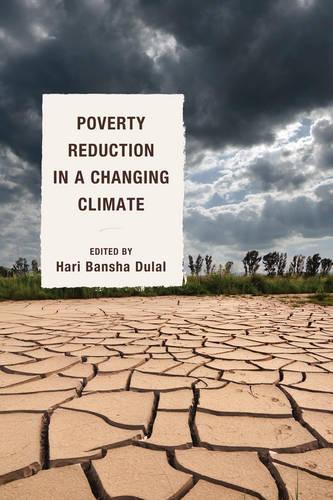
Poverty Reduction in a Changing Climate
(Paperback)
Publishing Details
Poverty Reduction in a Changing Climate
By (Author) Hari Bansha Dulal
Contributions by Nora Lustig
Contributions by Luis F. Lpez-Calva
Contributions by Subrata Mitra
Contributions by Jivanta Schttli
Contributions by Markus Pauli
Contributions by Kate Bird
Contributions by Kate Higgins
Contributions by George Joseph
Contributions by Quentin Wodon
Bloomsbury Publishing PLC
Lexington Books
25th February 2015
United States
Classifications
Professional and Scholarly
Non Fiction
Climate change
International relations
Political economy
Globalization
Central / national / federal government policies
362.55
Physical Properties
Paperback
430
Width 153mm, Height 227mm, Spine 25mm
676g
Description
Poverty reduction challenges in the twenty-first century are not the same as those from the previous century. The shift is due in no small part to climate change and climate-related weather disasters, such as extreme flood and drought. The magnitude and frequency of such events are only expected to increase in the coming decades, affecting more and more impoverished people across the globe. Poverty Reduction in a Changing Climate, edited by Hari Bansha Dulal, is a work which discusses the new innovations and funding mechanisms which have emerged in response to the rise of climate-related challenges in the twenty-first century. Dulal and the text's contributors explore the synergies and implications of those innovations with respect to poverty alleviation goals. This collection brings together a range of scholars from different backgrounds, ranging from political science, economics, public policy, and environmental science, all analyzing poverty reduction challenges and opportunities from different, forward-thinking perspectives.
Reviews
The important debates about climate change and poverty reduction usually occur in separate policy spheres. This compelling book argues that the impacts of climate change and poverty are increasingly interconnected. I highly recommend this timely and well-written volume because it shows how poverty alleviation and equitable growth can occur in the face of climate changeif policy makers are willing to address climate change and economic development in a holistic manner. -- Christopher D. Merrett, Western Illinois University
This edited collection provides a refreshing breadth in the perspectives that it presents and the issues that it tackles....Part One of the book...is particularly interesting, providing an analysis of the influence of the poor as a voting block in India, positing that divisions along ethnic, caste, religious, and other lines make the likelihood of Indias poor converging on a collective action agenda against poverty unlikely, despite Indias democratic electoral system. * E-International Relations *
Author Bio
Hari Bansha Dulal received his doctorate in environmental science and public policy from George Mason University. He is currently a consultant for climate change and clean energy at The World Bank in Washington, D.C.
